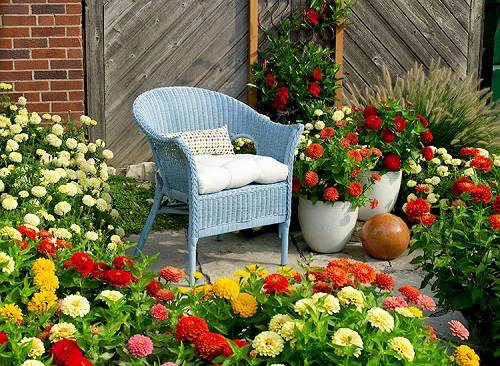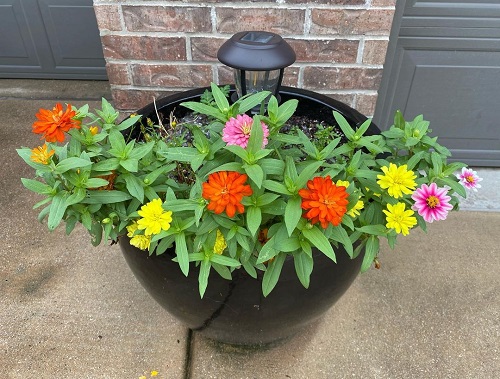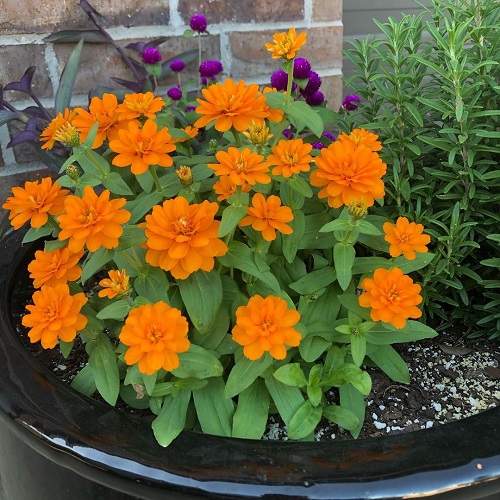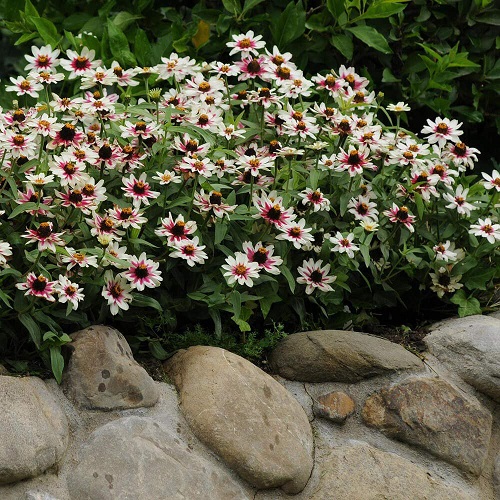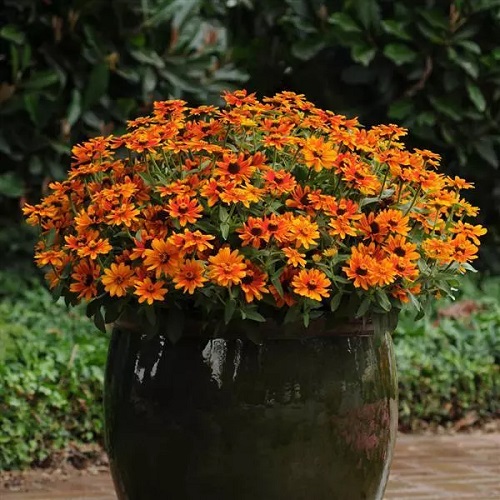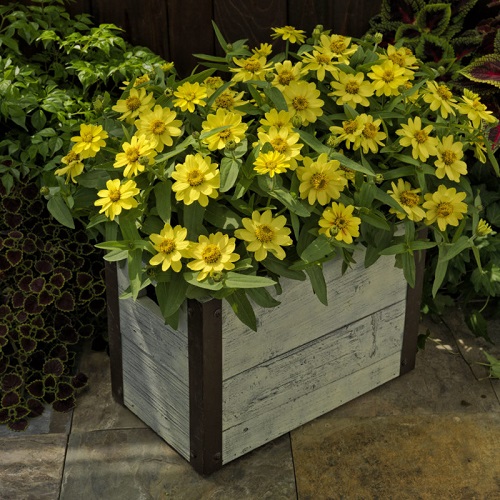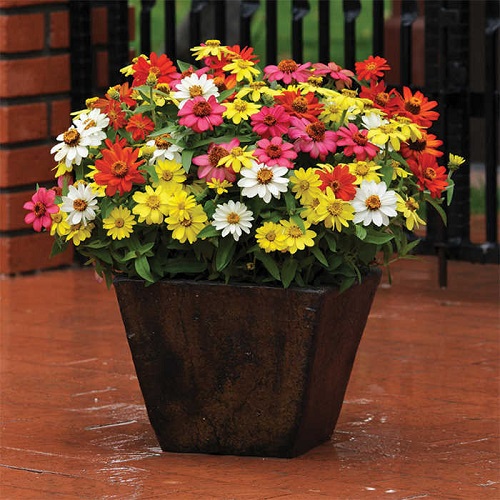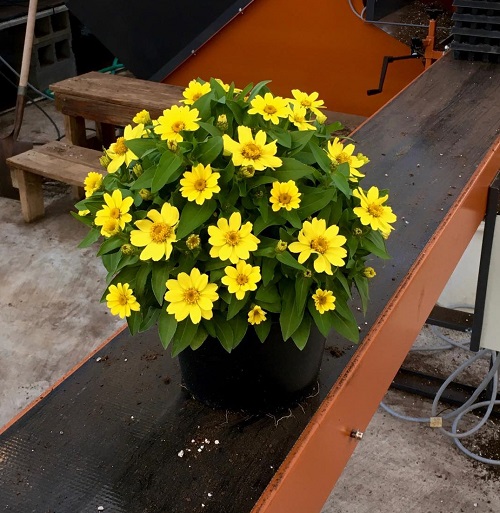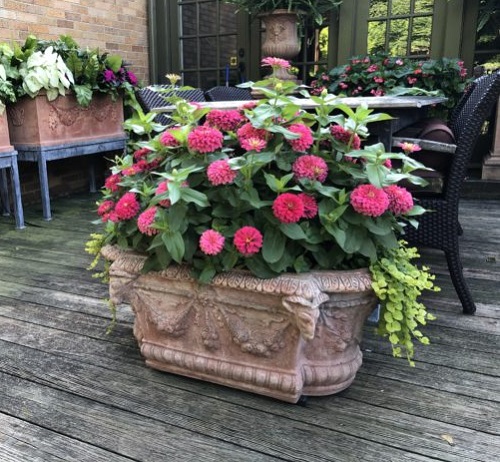Zahara Zinnias are popular for gardeners looking for vibrant, long-lasting blooms. Here’s how to grow it along with the best varieties!
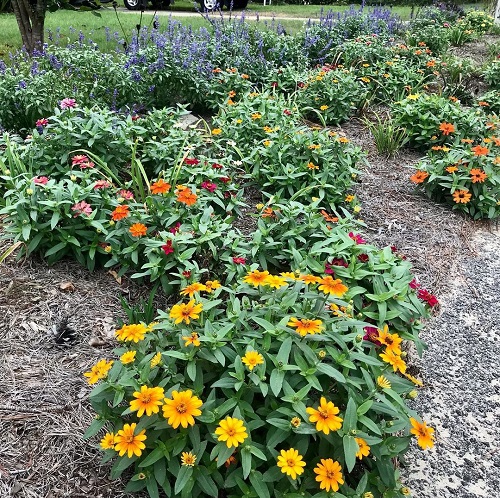
Zahara Zinnias are easy to grow and can add a burst of color to any garden or container. With proper care and maintenance, they can last for a really long time! Let’s have a look at how to grow them!
Learn about Growing Zinnias in Pots here
Propagating Zahara Zinnias
Zahara Zinnias can be propagated from seed, stem cuttings, or division.
From Seeds
Sow the seeds in well-draining soil, about 1/4 inch deep. Water the soil and keep it consistently moist until the seeds germinate. Once the seedlings are 2-3 inches tall, transplant them into individual containers or in the garden.
Here are the Best Types of Zinnia Varieties
From Stem Cuttings
Take 4-6 inch stem cuttings from a healthy zinnia plant and remove the lower leaves. Dip the stem cuttings in rooting hormone and place them in a pot filled with moistened potting soil. Keep the soil consistently moist and place the pot in a warm, sunny location. Once the cuttings have developed new growth, you can transplant them into individual containers or in the garden.
From Division
Dig up the zinnia plant and divide it into smaller sections, making sure each section has a good amount of roots. Plant the sections in individual containers or in the garden and water them thoroughly.
Do Deer Eat Zinnias? Find out here
Best Container to Grow Zahara Zinnia
You can start the plant in an 8-12 inches container. It will be good for 2-3 years, after which you can re-pot it to a one-size bigger pot, depending on the growth and spread.
How To Care Zahara Zinnia?
Sunlight
Zahara zinnias need plenty of sunshine to thrive and produce beautiful blooms. They should be planted in a location that receives at least 5-6 hours of direct sunlight each day.
Soil
These flowers thrive in well-draining, slightly acidic soil (pH 6.0-7.0). The soil should be rich in organic matter and should be kept consistently moist but not soggy. To ensure good drainage, it is best to mix in some compost and manure.
Learn How to Check Your Soil pH at Home here
Watering
Water deeply when the topsoil feels a little dry to the touch. Be sure to water in the morning so that the foliage has time to dry before nightfall. During periods of extreme heat, you may need to water more often, as plants can wilt quickly when temperatures rise.
Look out for these Sure Shot Signs of Underwatered Plants
Fertilize
To encourage healthy growth and blooming, it’s a good idea to fertilize your Zahara zinnias once a month using a balanced liquid fertilizer. Do dilute it to 1/2 of its strength.
Want to Make Organic Fertilizers from Kitchen Scraps? Click here
Deadhead Regularly
Deadheading is an important step to encourage more blooms. This means removing the spent flowers by cutting them back to a leaf node or the next healthy set of leaves. Pinch off the spent flowers at the base of the stem.
Pests and Diseases
Aphids and spider mites can be a problem. Use a strong spray of water to remove them from the plant. Neem oil can also be used for more severe infestations.
Powdery mildew can also affect Zahara Zinnias. Prune the plant regularly to improve air circulation and prevent the spread of mildew.
Check out Effective Ways to Get Rid of Powdery Mildew here
Winter Care
Zahara Zinnias are annual plants, so they will not survive the winter months. However, they can be dug up and stored indoors in a cool, dry location.
To do this, cut the stems back to about 2 inches above the ground and dig up the entire root system. Shake off excess soil and lay the roots in a single layer on newspaper or paper towels.
Allow the roots to dry for several hours, then place them in a paper bag or cardboard box filled with a combination of peat moss and sawdust. Store in a cool, dry location until spring, when they can be replanted outdoors.
Zahara Zinnias Companion Planting
Companion planting is a great way to improve the health and productivity of your garden. But it is equally important to do your research before planting any companion plants to ensure they are compatible. Here are some plants that can be beneficial to plant alongside Zahara zinnias:
- Marigolds: Marigolds are great companion plants for zinnias because they repel pests like aphids and nematodes, and their bright flowers can help attract pollinators to your garden.
- Nasturtiums: Nasturtiums are another great companion plant for zinnias. They can help deter pests like whiteflies, aphids, and cucumber beetles, and their colorful flowers can add visual interest to your garden.
- Petunias: Petunias can be planted alongside zinnias to help attract beneficial insects like ladybugs and lacewings, which can help control pests like aphids and mites.
- Cosmos: Cosmos are easy-to-grow annual flowers that can be planted alongside zinnias to help attract pollinators like bees and butterflies to your garden.
- Herbs: Some herbs, like basil and parsley, can be beneficial companion plants for zinnias because they can help deter pests like tomato hornworms and improve soil health.
Check out Companion Planting Combination Ideas here
Best Zahara Zinnias Varieties
Zahara zinnias come in a variety of colors and sizes. Here are some of the Best Zahara Zinnias Varieties:
1. Zahara Double Fire
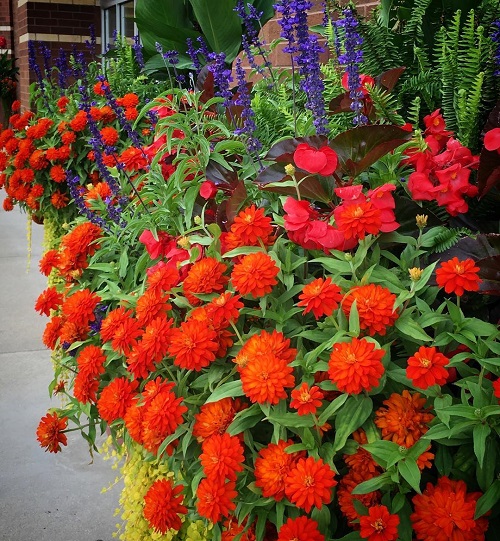
Botanical Name: Zinnia marylandica ‘Double Fire’
USDA Zone: 2-11
This variety features double, fiery orange-red blooms that are sure to make a statement in any garden. The plants grow up to 12-18 inches tall and wide.
2. Zahara Double Cherry
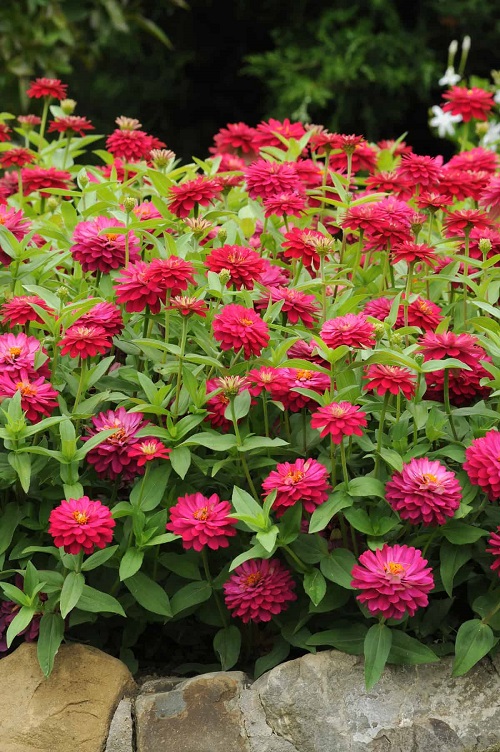
Botanical Name: Zinnia marylandica ‘Double Cherry’
USDA Zone: 2-11
This variety has double, bright cherry-red blooms that are perfect for adding a pop of color to your garden or patio.
Here are Different Types of Green Apple Varieties
3. Zahara Starlight Rose
Botanical Name: Zinnia marylandica ‘Starlight Rose’
USDA Zone: 2-11
This variety has a unique star-shaped bloom with white petals and a pink center. Its unusual blooms make it a great choice for adding interest to your garden.
4. Zahara Sunburst
Botanical Name: Zinnia marylandica ‘Sunburst’
USDA Zone: 3-10
This variety has bright, sunny yellow blooms with a red center. The flowers are 2-3 inches in diameter and bloom on compact, bushy plants.
Here are Sweet Apple Varieties
5. Zahara Raspberry Lemonade
Botanical Name: Zinnia marylandica ‘Raspberry Lemonade’
USDA Zone: 3-10
This eye-catching variety of zinnia features bright pink and yellow blooms that resemble the colors of raspberry lemonade.
6. Zahara Mix
Botanical Name: Zinnia marylandica ‘Mix’
USDA Zones: 3-10
Zahara Mix is another heat-tolerant and disease-resistant variety. Its bloom in pink, yellow, orange, and red colors makes it a great choice for creating a colorful garden display.
Here are Beautiful Black and White Sunflower Varieties
7. Zahara Yellow
Botanical Name: Zinnia marylandica ‘Yellow’
USDA Zone: 2-11
This bright and cheerful variety of zinnia has bright yellow blooms that are 2-3 inches in diameter.
8. Zesty Fuchsia Zinnia
Zesty Fuchsia Zahara is a bright and vibrant flower with petals of deep magenta and a yellow canter. It has a long-lasting bloom period.

